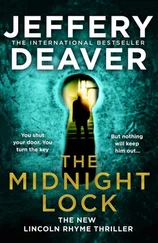And, if so, where would it lead?
Shaw opened his backpack and emptied the BlackBridge courier bag’s contents onto the table. Once again he and Russell divided it up and flipped through the documents, now knowing that the Endgame Sanction was judicial in nature and from 1906.
“Got it,” Shaw said. “I saw it before but didn’t think anything of it.”
He set the aging sheet of paper on the table.
So here it was: the Endgame Sanction.
In the matter of the Voting Tally in the Twelfth Congressional District, regarding Proposition 06, being a referendum put before the People of the State, I, the Right Honorable Selmer P. Clarke, Superior Court, do find as a matter of fact the following:
The initial ballot results as reported were in error. The correct vote tally was 1,244 in favor of the Proposition, 1,043 against.
Accordingly, I order that the Vote Tally as amended to reflect the yea and nay ballots set forth herein, be entered into the record in the State Assembly and Senate, effective as of this date, April 17, 1906.
An elaborate signature was beneath the text.
Russell picked up the sheet and turned it over. The back was empty. He then held it up to the light to look for hidden, or obscured, messages.
“Nothing.” Russell rubbed the back. “It’s an original, not a copy.” A typewriter had been used to produce the document and you could just feel indentations from the keys.
Shaw read it once more. “I don’t see how ‘sanction’ fits.”
“La Fleur said it might be just a code. Maybe Helms and Devereux didn’t want anyone to use the words ‘tally’ or ‘ruling’ in public. They wanted to keep this secret.”
Shaw shook his head. “Devereux is desperate to find it.” He recalled that La Fleur said if the Sanction were found the consequences would be disastrous.
Russell asked, “What’s Proposition Oh-Six?”
Shaw booted up his computer and logged on through an encrypted server. He Googled the question. There was nothing in Wikipedia but he found a reference in an archive of California State constitutional and legislative measures. “It was a referendum in nineteen oh-six to amend the state constitution.” He turned the Dell so both he and Russell could read. They scrolled through paragraph after paragraph of legalese, having to do with taxation, immigration and trade mostly.
Why was Gahl as desperate to destroy this document as Devereux was to get his hands on it?
Then an idea occurred to Shaw. He pulled out his Android and placed a call to her equally shielded burner phone.
Mary Dove answered on the second ring.
“How is it there?”
“We’re good. Tom Pepper’s men are here. They’ve set up a perimeter. Electronic warning. And, Colt, they have a machine gun. I mean, a big one, on a bipod. Can you imagine?”
“Good. I don’t think it’ll come to that.”
“Hope not. We don’t want to disturb the bears. We’re right in the heart of mating season. Are you all right?”
“We’re both good, Russell and I.”
“Russell?”
“He came back to help me on Ashton’s job.”
“Well.”
“I just have a minute. But I’ve got a question. And you’re the only one who can answer it.”
After a complicated drive, to make sure no one was following — and a scan for drones in the area by the resourceful Karin — they arrived in Berkeley, across the Bay, north of Oakland.
They were on their way to meet one of Ashton Shaw’s academic colleagues, who lived near campus: Steven Field. He was a semi-retired professor of political history. When Shaw had called his mother a half hour ago, he’d asked if she knew of any of Ashton’s associates who had this specialty. Mary Dove immediately mentioned Field.
Shaw had a vague recollection of seeing the man several times years back. Field had come to visit at the Compound. Those were the days when Ashton was at his peak. Oh, Shaw could remember a few bouts of bizarre behavior but Mary Dove would put on her psychiatrist’s hat and make sure he got the right meds and monitored his behavior and he’d soon return to his animated, witty self.
One of the hardest parts of the move from the Bay Area to the Compound was the severing of social contacts. This was true for Colter and, particularly, his older brother; Dorion was just a toddler. Looking back, Shaw was sure it had been tough on Ashton and his wife too. They had both been professors and she had had the additional job of university principal investigator. Those vocations were callings that came with daily contact with colleagues, administrators, corporate executives and students. All of that vanished abruptly when he took the family to the Sierra Nevadas.
He would, however, encourage a few, select colleagues from the Bay Area to come for visits. Young Colter could recall men and women sitting in the living room in front of the huge fireplace, talking far into the night. Like all children, he paid little attention to the words but from time to time he would note the adults’ animation, and feel, rather than hear, the laughter. As a child he didn’t grasp all the nuances, but he enjoyed the animated talk about political science, law, government, American history and — Ashton’s odd hobby — advanced physics.
Though invariably as the night grew later, the restless boy would become bored and head outside to listen to owls and wolves and gaze at the radiant canopy of stars.
Sometimes he’d take short nighttime hikes.
Often, with Russell.
His brother now asked, “You think Field was part of Ash’s circle — to take on BlackBridge?”
Shaw had wondered that himself. Then, considering the matter, he said, “Doubt it. Those people’re all gone now. I’d say they were just friends, fellow professors.”
Earlier, Shaw had called Field and arranged to meet him in the privacy of his home.
But with a stipulation.
“We’d like to come in through your back door, off the alley.”
The man’s cheerful voice had said, “You must be a Shaw. You sound just like your father. He was always going on: They’re watching me.” Then he paused and laughed. “I was going to give you my address but if you know there’s an alley — I won’t even ask how you found that out — I guess you don’t need it.”
Shaw was aware of an urgency — the attack on the SP family was now a little more than twenty-four hours away. But they had to be careful and were taking a long route to Field’s house, looking out for any sign of Droon or Braxton, as well as the mysterious green Honda.
They registered no threats, and Russell turned onto the street that would take them to the professor’s home.
He found they had to divert, though. A protest was underway and the street was blocked.
Ashton had read his children plenty of fiction as bedtime approached in the Compound, but he also read them the news and history too — among those the rich history of demonstrations at the university and in the town itself. Civil rights, the Vietnam War and free speech were the main topics in the mid-sixties protests. Recently there’d been a series of violent clashes, mostly political and often involving free speech.
Shaw caught a glimpse of one of the signs.
Corporate Sellouts — No!
That seemed to be the theme of the past few days.
Russell parked the SUV on the street two blocks from Field’s house, standard procedure within his group, Shaw guessed. The huge vehicle was a sore thumb at the curb. Most of the modes of transportation here were hybrids, electric or human powered. Shaw even noted a few of the now-discontinued Smart cars.
Berkeley. Say no more.
The men proceeded into the alley. They continued along the pebbly lane for about fifty yards and then slipped through the gate in the picket fence into Field’s backyard, where they followed a gently curving, moss-dotted flagstone path to the back door. The house might have been transplanted from a small English Midlands village. Clapboard siding in brown, forest-green windows, trim and doors. The garden was more lush and meticulously tended than the garden of Eleanor Nadler — Amos Gahl’s mother.
Читать дальше
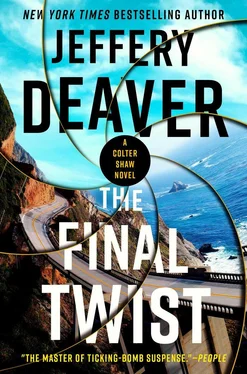
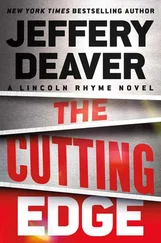

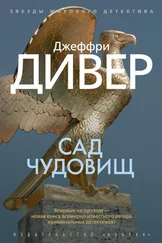

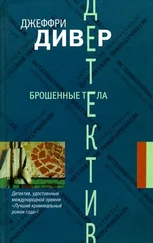
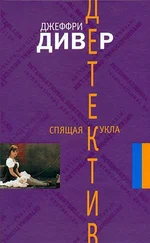
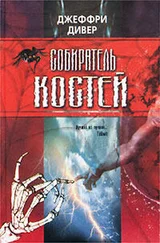
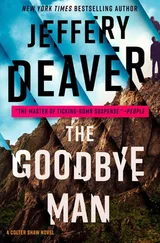
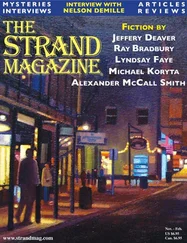
![Джеффри Дивер - Where the Evidence Lies [A Lincoln Rhyme Short Story]](/books/403782/dzheffri-diver-where-the-evidence-lies-a-lincoln-r-thumb.webp)

